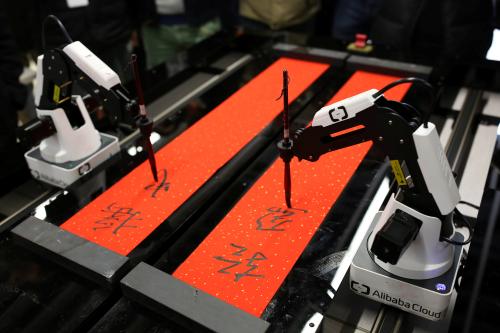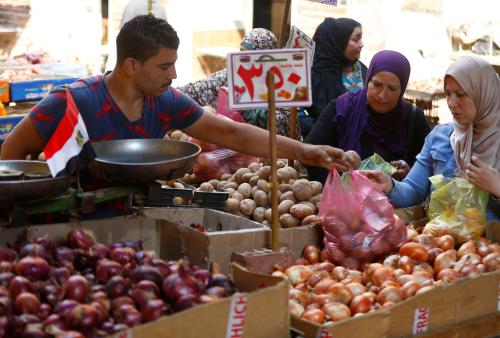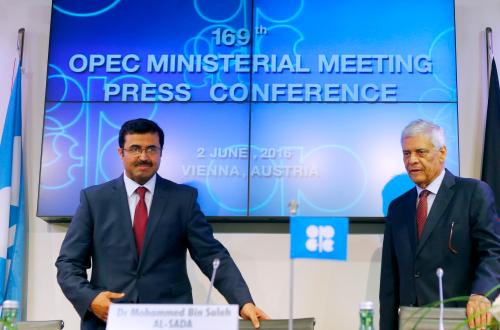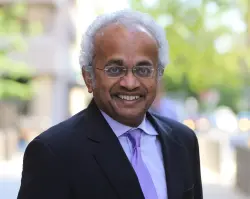Recently on Future Development, authors analyzed different arguments for and against universal basic income, including on the topics of how to better use oil revenues, universal versus targeted social programs, ending extreme poverty, providing basis needs, and boosting financial inclusion and transparency.
The oil-rich countries of Africa and the Middle East all seem to suffer from a common malady: the inefficient use of their oil revenues. The Central-African countries of Gabon and Equatorial Guinea have per-capita incomes of $10,000 – $20,000, but high child mortality rates of about 6-10 percent and some of the lowest immunization rates in Africa. The leakage rate of non-wage public health spending in Chad is 99 percent. In Cameroon, only half of the budgeted spending in priority sectors is actually spent on these sectors. Chad has the highest classroom construction costs in Africa (four times that of the next most expensive country); Cameroon’s road maintenance costs are double the African average.
In the Gulf states of the Middle East, the lion’s share of oil revenues is spent on subsidies and public employment. In Kuwait, 36 percent of GDP is spent on public wages (16 percent) and subsidies (20 percent). The latter include subsidies to electricity, water and petroleum products, all of which contribute to depletion of scarce resources (like water), road congestion, pollution, and traffic accidents. Meanwhile, 95 percent of the male labor force is working in the (highly paid) public sector. Not surprisingly, the indigenous private sector in Kuwait is very small.
Why are these problems so extreme in oil-rich countries? Because in these countries, oil revenues go directly from the oil company to the government without passing through the citizen. As a result, citizens may not know the size of oil revenues accruing to the government. They may not think of it as “their money” (even though it is). The consequence is that governments are not held sufficiently accountable for the use of oil revenues, leading to leakage, corruption, and other inefficiencies noted above. Even when, as in Kuwait, governments attempt to redistribute oil revenues to citizens, they do so using public employment and subsidies, two of the most inefficient instruments available.
What can be done to change this situation? If, instead of making (unaccountable) public-spending decisions with their oil revenues, governments were to distribute these revenues directly to citizens (in equal amounts to all citizens), and then tax them to finance public goods, there would be at least two effects. First, citizens would have a better idea of how much revenues there were. Second, since expenditures were being financed from their tax payments, citizens may have greater incentive to scrutinize these expenditures.
By modeling the relationship between government and citizens as a game, my colleagues and I have shown that these Direct Dividend Payments (what has since come to be called Universal Basic Income) could result in more efficient public expenditure. With better information about the magnitude of revenues, citizens have greater incentive to scrutinize government spending, even if that scrutiny entails some costs. Even without the additional scrutiny, simply the lump-sum transfer of just 20 percent of oil revenues is sufficient to eliminate extreme poverty in Angola, Republic of Congo, Equatorial Guinea, Gabon, and Nigeria. In a Gulf state like Kuwait, replacing public-sector salaries with transfers, even at the same rate as current salaries, could enable Kuwaitis to start their own business, educate their children, or pursue some other productive activity outside the public sector. The net result would be a dynamic private sector, efficient public spending, and—in the case of poor countries—less poverty.
A natural question to ask is: How realistic is this proposal? For three reasons, the time to introduce UBI in oil-rich countries may have arrived. First, technology has made such schemes feasible. Smartcards that combine biometric I.D. with electronic cash transfers, such as India’s Aadhaar card (which as of March 31, 2017 had registered 1.13 billion people) could be introduced to implement the UBI scheme. Secondly, some recent political-economy analysis suggests that movement towards a UBI scheme in resource-rich countries is more likely where there are high resource rents, significant poverty, and weak institutions, and the possibility of “neighborhood effects” (when one country adopts an idea, others in the neighborhood follow, as happened with conditional cash transfers). Inasmuch as many of the oil-rich countries of Africa and the Middle East share these characteristics, there may be a political opening for UBI as well. Finally, persistently low oil prices since 2015 have prompted many oil countries to rethink their subsidy schemes and public-sector employment programs. Replacing these programs with a more efficient way of sharing oil revenues is a way of turning necessary austerity into an opportunity.
The Brookings Institution is committed to quality, independence, and impact.
We are supported by a diverse array of funders. In line with our values and policies, each Brookings publication represents the sole views of its author(s).








Commentary
How to use oil revenues efficiently: Universal basic income
May 30, 2017